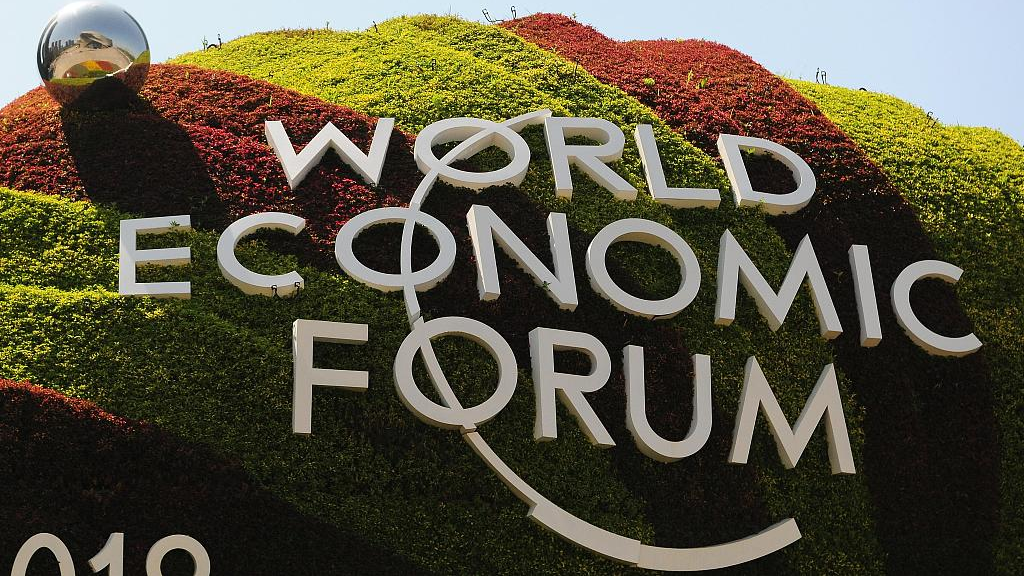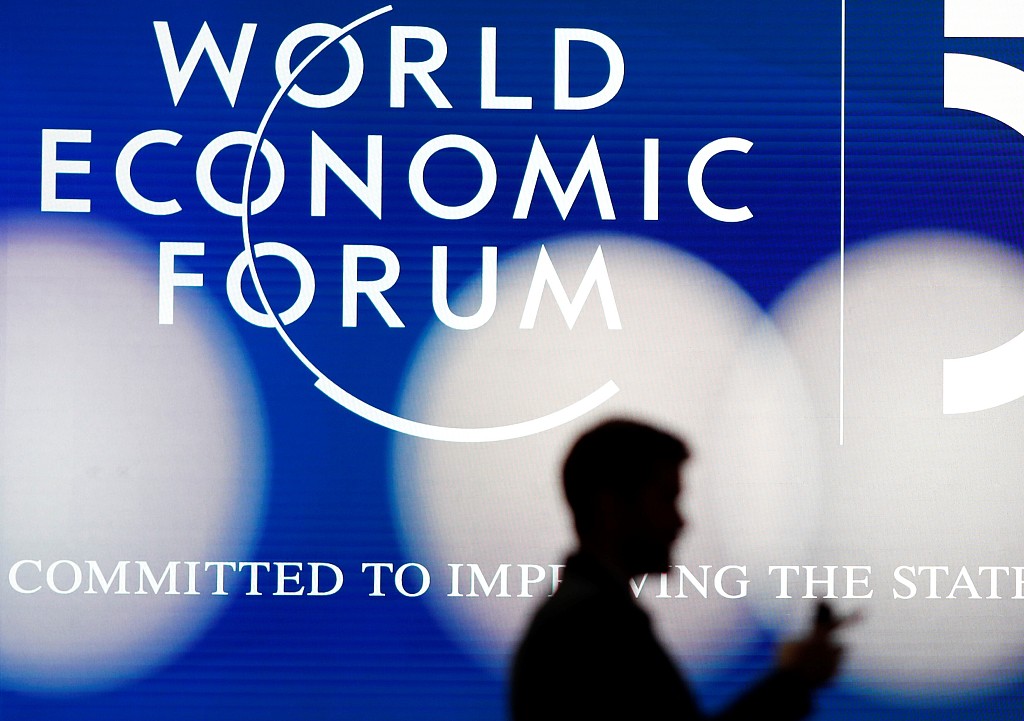
The logo of World Economic Forum's Annual Meeting for New Champions in Dalian, Liaoning Province, China, July 3, 2019. /CFP
The logo of World Economic Forum's Annual Meeting for New Champions in Dalian, Liaoning Province, China, July 3, 2019. /CFP
Editor's note: Alessandro Golombiewski Teixeira is a national thousand talent distinguished professor of public policy at the School of Public Policy and Management, Tsinghua University, and a professor of international business at Schwarzman College in Tsinghua. He is a former special economic advisor to the president of Brazil and former Brazilian minister of tourism, and minister of development, industry and foreign trade. He was also president of the World Investment Association (WAIPA). The article reflects the author's opinions, and not necessarily those of CGTN.
The World Economic Forum (WEF), also called the Davos Forum, will be held online from January 17 to 21. Global leaders have been invited to attend a series of online meetings, discussing the major challenges that the world is facing and will face in the near future.
While the pandemic and its effects are expected to recede by 2022, many significant challenges remain globally. Before the launch of the Davos Forum, it published the Global Risks Report 2022 on January 11, which shows that more than 84 percent of global experts surveyed by the forum are worried about global prospects. The Davos 2022 agenda provides the starting point of the dialogue needed for global cooperation in a timely manner. It will be interesting to see how these challenges are discussed and what solutions are presented at the conference.
The Davos Forum will focus on key challenges in four areas: global climate issues, post-pandemic recovery, economic and social resilience, and global cooperation. To make progress on these issues, the Davos Forum suggests the countries focus on climate and ecological issues when making their recovery plans. It also hopes countries can seize the key to building resilient, efficient and equitable healthcare systems, and focus on poverty and income inequality.
Besides, countries should stabilize the economy while ensuring it is resilient and equitable enough, lead the digital transformation to bring positive impacts, and strengthen global cooperation in pursuit of shared prosperity. Hopefully, national and government leaders, government officials, heads of international organizations, business representatives and others will discuss these and form a consensus at the forum.
According to the forum's Global Risks Report 2022, climate action failure, extreme weather and biodiversity loss are ranked the top three most-severe risks for the world over the next decade. The dramatic decline in greenhouse gas emissions resulting from the pandemic demonstrates that the goals of climate action are possible and the key is a successful energy transition. This will require broad support from the international community.
Countries such as Sweden, Switzerland and Finland have already made the move to clean energy. And China has made significant progress in controlling carbon dioxide emissions by shifting to electric vehicles and investing heavily in solar and wind energy – it now has the world's largest solar photovoltaic and onshore wind capacity. Like China, Argentina, India and Italy have made continuing strong progress each year. Countries such as Bangladesh, Bulgaria, Kenya and Oman have also made progress over time. At the upcoming WEF, world leaders will discuss the development of a robust energy transition framework to combat global warming.

As the first major global exchange platform in 2022, Davos will launch a number of key initiatives, including accelerating towards net-zero emissions, securing economic opportunities under eco-friendly solutions, creating cyber resilience, strengthening global value chains, building economies in vulnerable markets through humanitarian investment, filling the vaccine production gap, and using data solutions to prepare for the next pandemic.
It is important to note that 2022 is the third year since COVID-19 appeared. As vaccines continue to develop and mutant strains of the virus emerge, global distribution of vaccines is an important step to reduce health, economic and geopolitical risks.
The Davos Forum said the pandemic has led to a reversal of progress in addressing world poverty and income inequality and that vaccination inequality and inflation may continue to exacerbate social disparities. As a result, issues in economic and social resilience should receive attention. Three related sessions at the Davos Forum – renewing the global social contract, Environmental, Social and Corporate Governance (ESG) indicators for a sustainable future, and global economic prospects – will be held on January 18, 20 and 21, respectively.
In addition, deepening political and social divisions, increasing distrust of institutions, the spread of misinformation and disinformation, and the digital transformation of business and society are also issues of concern at the Davos Forum, and the future should focus on the risks associated with rapid digital transformation, strengthening global cooperation, and pursuing shared prosperity.
Following the forum's Global Risks Report 2022, the forum will release the Global Cybersecurity Outlook 2022 and the Global Competitiveness Report 2021-2022 on January 18 and January 26, respectively.
Its fruitful results are expected by people all over the world, offering alternative ways to world economic sustainable recovery.
(If you want to contribute and have specific expertise, please contact us at opinions@cgtn.com.)

